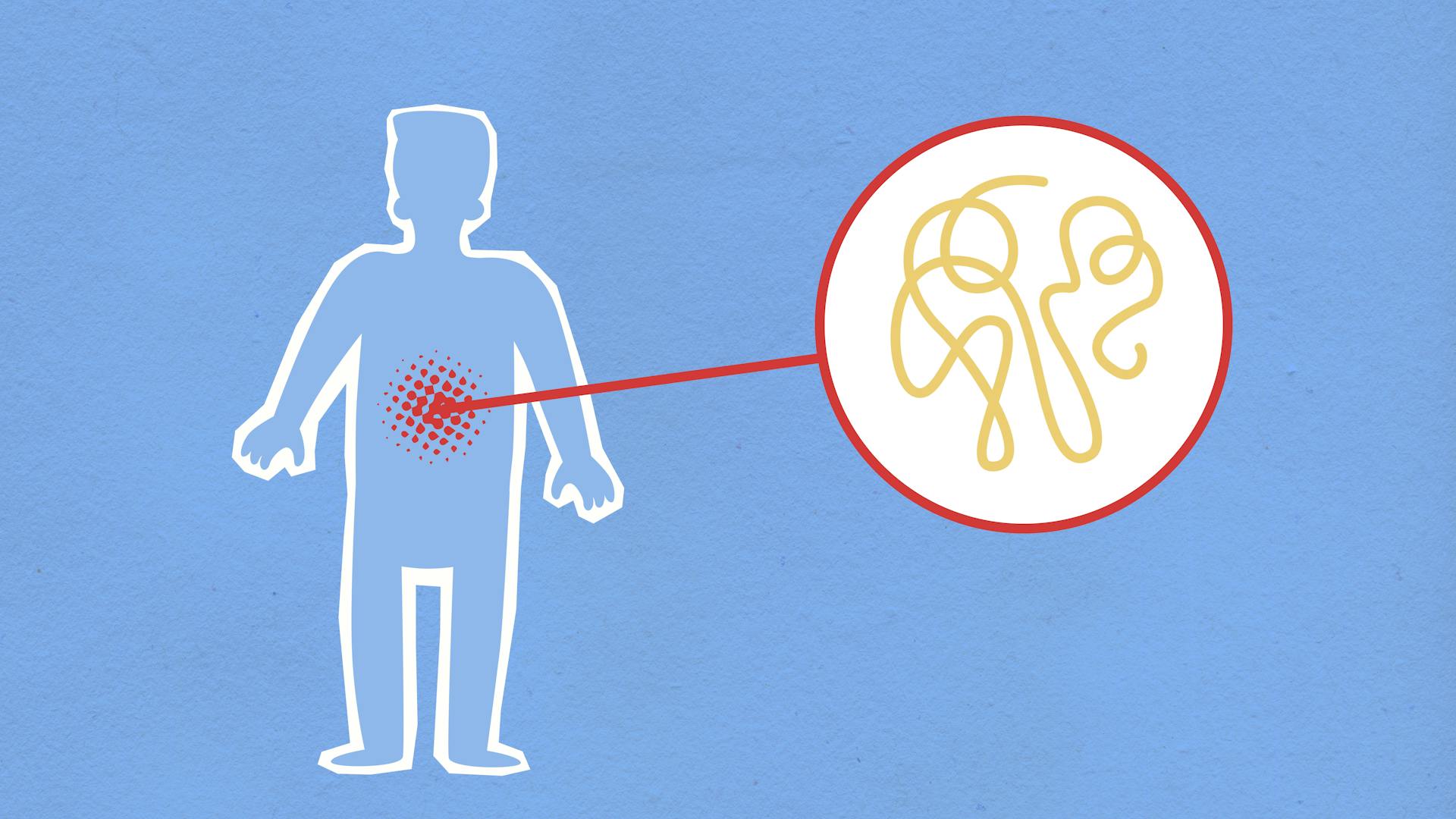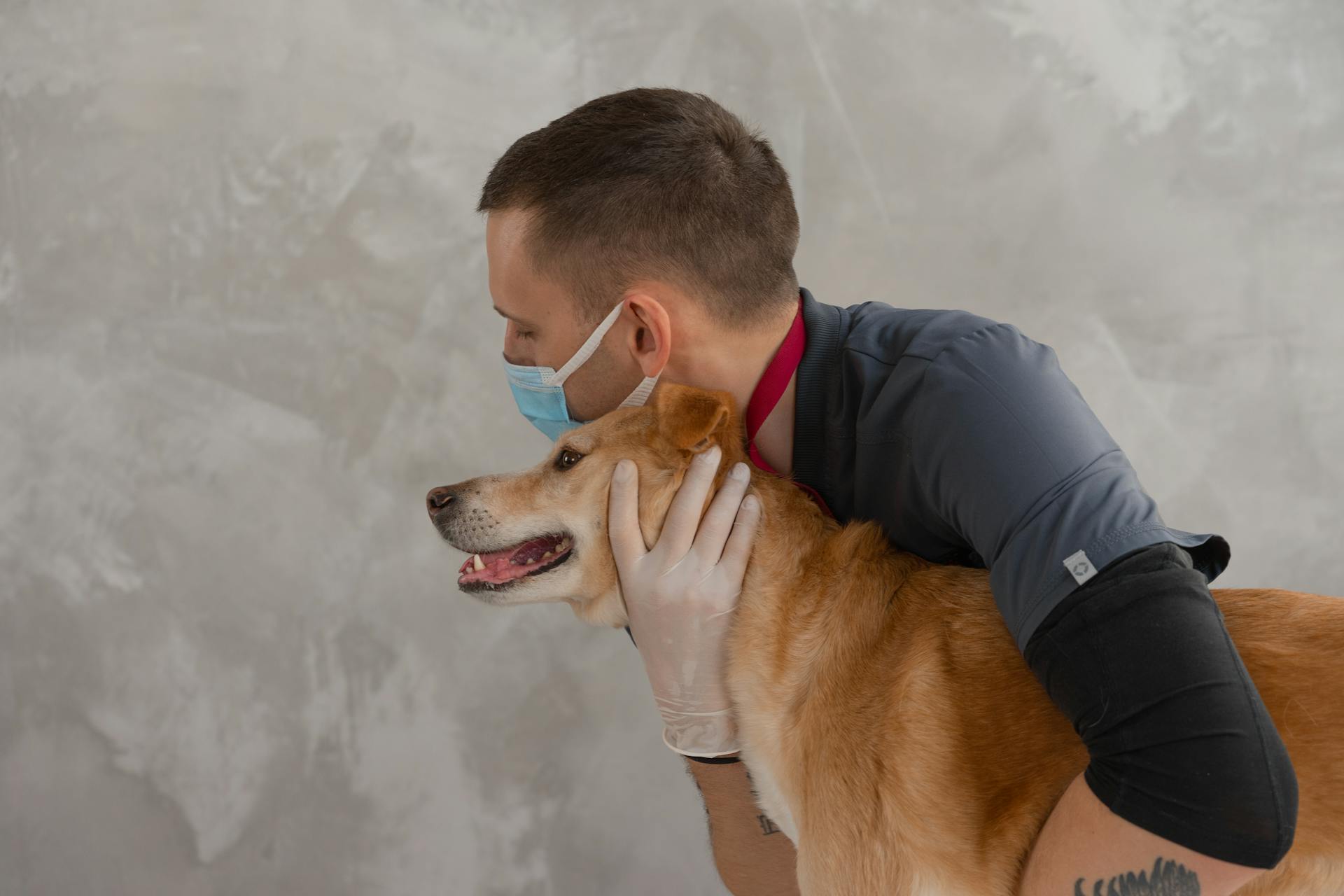
Dogs can develop a painful and life-threatening condition called pancreatitis, where the pancreas becomes inflamed. This condition can be caused by a variety of factors, including genetics, obesity, and high-fat diets.
The symptoms of pancreatitis in dogs can be similar to those of other conditions, making it challenging to diagnose. Common symptoms include vomiting, diarrhea, abdominal pain, and lethargy.
Dogs with pancreatitis often require immediate veterinary attention to prevent further complications. In severe cases, pancreatitis can lead to organ failure and even death.
If you suspect your dog has pancreatitis, it's essential to seek veterinary care right away, as prompt treatment can greatly improve their chances of recovery.
Diagnosis and Detection
A vet will typically start by reviewing your dog's medical history to understand their overall health and identify any potential risk factors for pancreatitis.
Your vet will also perform a physical examination to check for signs of pancreatitis, including a check of your dog's stomach, gums, heart, and temperature.
Suggestion: Vets Dog Treats
Blood tests can be used to measure pancreatic enzymes, which can help diagnose pancreatitis.
Radiographs or ultrasound may be used to rule out other causes of your dog's symptoms.
A fine needle aspiration of the pancreas can also be used to diagnose pancreatitis.
In acute pancreatitis, ultrasound can detect close to 70% of cases in the acute phase, and can also reveal other contributing or aggravating issues.
General bloodwork can show changes in liver, kidney, and electrolyte values.
A "snap PLI" kit can provide a quick result, but if it's negative, you can rule out pancreatitis, and if it's positive, you'll still need a cPLI to confirm a diagnosis.
Here are some common diagnostic tools your vet may use:
- Ultrasound
- General bloodwork
- Spec cPL (serum canine pancreatic lipase immunoreactivity)
- DGGR Lipase Assay
Note that one positive lab test is not adequate to diagnose pancreatitis, and your vet will need to assess the full clinical picture, including tests.
Long-Term Effects and Risks
Most dogs recover from pancreatitis without long-term consequences. However, severe or repeated episodes can lead to some serious issues.
Dogs with chronic pancreatitis are more likely to develop secondary conditions. This is a significant factor in treatment success.
A significant number of cells that produce digestive enzymes can be destroyed, leading to exocrine pancreatic insufficiency (EPI). This can be treated with daily administration of an enzyme replacement powder.
In rare cases, painful adhesions between the abdominal organs may occur due to pancreatitis.
If a significant number of cells that produce insulin are destroyed, diabetes mellitus can result.
Symptoms and Prevention
Dogs with pancreatitis often exhibit symptoms such as vomiting, diarrhea, and abdominal pain, which can be severe and debilitating.
The pancreas is a vital organ, and inflammation can lead to serious complications, including organ failure.
Common symptoms of pancreatitis in dogs include lethargy, loss of appetite, and weight loss.
Preventing pancreatitis in dogs is crucial, and one way to do so is by maintaining a healthy weight through regular exercise and a balanced diet.
Feeding your dog a high-fat diet can increase their risk of pancreatitis, so it's essential to choose a well-balanced, low-fat food.
Causes

Causes of pancreatitis in dogs can be sneaky and often seem to come out of nowhere. A high-fat diet is a major cause, especially if your dog gets a large helping of fatty food in one sitting.
Obesity is also a risk factor, and it's not just about your dog's weight, but also about their overall health. Hypothyroidism, or other endocrine diseases, can also contribute to pancreatitis.
Severe blunt trauma can also trigger an attack, and it's not just physical injuries that can cause problems. Certain medications or toxins, such as cholinesterase inhibitors, calcium, and potassium bromide, can also bring on pancreatitis.
Some breeds, like Miniature Schnauzers and smaller toy and terrier breeds, may be more prone to pancreatitis due to a genetic predisposition.
Consider reading: Dog Breeds Watch Dogs
Symptoms and Prevention
If your dog is showing signs of abdominal pain, the worst thing to do is feed them a fatty diet.
High-fat diets are a major cause of pancreatitis, especially if your dog gets one large helping of fatty food in one sitting. A history of dietary indiscretion, or eating anything and everything, can also lead to pancreatitis.

Obesity is another risk factor, so it's essential to keep your dog at a healthy weight. Hypothyroidism, or other endocrine diseases, can also increase the risk of pancreatitis.
Some breeds, such as Miniature Schnauzers and smaller toy and terrier breeds, may have a genetic predisposition to pancreatitis. Yorkshire Terriers, in particular, have an increased risk of acute pancreatitis.
Here are some breeds that are more prone to chronic pancreatitis:
- Cocker Spaniels
- Cavalier King Charles Spaniels
- Collies
- Boxers
The best way to prevent pancreatitis is to feed a low-fat, high-fiber diet. Your veterinarian can recommend a premium dog food or provide a specific diet plan for homemade meals. It's also essential to keep an eye on your dog's caloric intake and give them several small meals throughout the day, rather than one large one.
Dehydration
Dehydration is a serious condition that can quickly become an emergency in dogs. Diarrhea or vomiting can cause dehydration, but bloody diarrhea makes it worse.
Diarrhea and vomiting can outpace a dog's ability to drink water, leading to dehydration. If your dog is lethargic and not drinking water, it's a good idea to take them to the vet.
Dry mucous membranes, such as on the gums, can be a quick way to assess dehydration.
Dog Nutrition
If your dog is recovering from pancreatitis, a bland diet may be just what the vet ordered. A bland diet can be helpful while your dog is recovering from a pancreatitis episode, whether it's acute or chronic.
Bone broth can be a great choice as your dog starts to feel better.
Cooked chicken breast and white rice make up a good bland diet if your dog is ready for solid food.
Frequently Asked Questions
Does ham cause pancreatitis in dogs?
Yes, ham can cause pancreatitis in dogs due to its high fat content, which can be difficult for them to digest. Sharing ham with your dog, especially if they're overweight, can lead to digestive upsets.
What kind of meat can a dog with pancreatitis eat?
For dogs with pancreatitis, low-fat meats like lean chicken breast are a suitable option. Consult a veterinarian for specific dietary recommendations to manage your dog's condition effectively.
Sources
- https://www.webmd.com/pets/dogs/dog-pancreatitis-symptoms-and-treatment
- https://vcahospitals.com/know-your-pet/pancreatitis-in-dogs
- https://www.akc.org/expert-advice/health/pancreatitis-in-dogs/
- https://ncvs.net.au/nutritional-requirements-for-canine-pancreatitis-patients-2/
- https://www.dogsnaturallymagazine.com/manage-pancreatitis-in-dogs/
Featured Images: pexels.com


